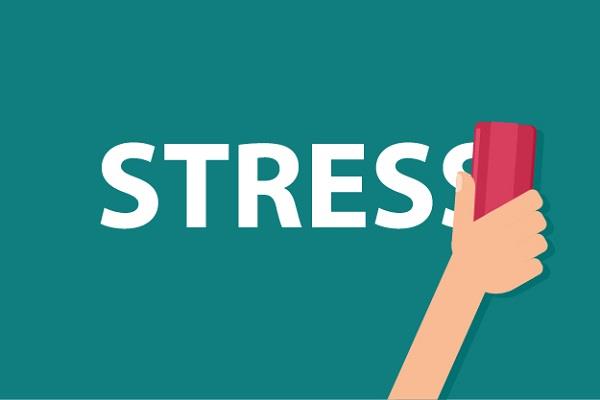
Stress is our bodies reaction to any form of demand or threat. It helps you stay focused, attentive, and ready to face problems. Acute stress can be adaptive and rarely causes health problems. However, chronic stress can harm your general health and disrupt practically every function in your body. Homeopathic Stress Management treatments may aid in the management of stress, anxiety, and panic attacks. Homeopathy is a natural and holistic stress management strategy that can bring great relief to those suffering from the harmful consequences of stress.
The consequences of persistent stress
Depression and anxiety are examples of mental health issues.
Memory issues
Cardiovascular problems
Weight issues and eating disorders
Obstacles to reproduction
Acne, psoriasis, and eczema are examples of skin and hair disorders.
Irritable colon, gastrointestinal problems
Pains and aches
Immune deficiency
Acute stress reactions can be triggered by unexpected shock or aggressive conditions. The majority of people will recover in time. However, in a small number of cases, this can result in post-traumatic stress disorder. (PTSD)
Common sources of stress
Negative events or situations, as well as our ideas and attitudes, can all contribute to stress. The stress threshold varies from person to person. Major life changes, marital troubles, family issues, financial instability, job loss, excessive working hours, too much work responsibility, negative self-talk, pessimism, chronic illness or injury, the death of a loved one, and so on are common reasons.
Homeopathic Stress Reduction
Homeopathic remedies are chosen based on the individual’s characteristics and how the person reacts to and perceives the stress scenario. Homeopathic physicians choose medicines based on each person’s unique symptoms rather than giving specific cures for specific ailments. A detailed interview is usually conducted by a homeopathy to completely analyze the person’s symptoms. A correctly chosen constitutional remedy can help to improve our mind and body while also healing stress damage. There are symptom-specific treatments for acute stress and panic attacks.
Homeopathic medicines were tested on healthy people, and the emotional image and strength of symptoms were similar. The symptom pictures of some homeopathic remedies are shown here to demonstrate how intricate and varied homeopathic remedy selection is.
Aconite
This remedy is appropriate for panic attacks and acute stress circumstances. A person may have a parched mouth, a racing heart, shortness of breath, a flushed face, shaking, and acute panic.
Album of Arsenicum
Fear of being alone, agitation, and anxiousness. The symptoms may be associated with indigestion and diarrhea, and they are also pessimistic about their recovery.
Gelsemium
Avoid crowds and public speaking if you have nervousness. If they are worried about anything, they may experience diarrhea.
Ignatia
Sadness and anguish after the loss of a loved one. Sensitive people are prone to mood swings that range from laughter to sorrow.
Pulsatilla
They require the company, comfort, and reassurance of others. Weeps easily has a sensitive mind and a volatile disposition. Gastric difficulties are possible, especially after eating rich and fatty foods.
Some research suggests that homeopathy can help with anxiety. Homeopathic Pulsatilla was discovered to provide anti-anxiety benefits in mice in this study.
Homeopathy
Before using any homeopathy product, a person should consult with their doctor.
HomeopathyTrusted Source works on the principle that the smaller the dosage, the more successful the treatment.
If a person has an ailment, a practitioner may advise them to take very low dosages of a chemical that, in high levels, would elicit the same symptoms as their condition.
Lower quantities of the same chemical, according to homeopaths, may reverse symptoms. There is no solid scientific evidence that these homeopathic therapies are effective.
The British Homoeopathic Association, which follows this method, recommends the following anxiety remedies:
Arsenicum album: This herbal medication may aid in the treatment of chronic anxiety, depression, and gastrointestinal issues.
Ignatia: This may help with depression or anxiety after a traumatic or shocking event.
Natrum muriaticum: This herb may be beneficial for persistent stress and moderate depression.
Sepia: Sepia may benefit persons who feel exhausted and unloved, and it may be especially beneficial for postpartum mental health difficulties.
The National Centre for Homoeopathy also suggests the following additional anxiety treatments:
Some people feel that aconite can assist alleviate acute anxiety attacks.
Argentum nitricum: Practitioners may recommend this for people who are afraid of small spaces, heights, bridges, or their health.
Lycopodium: This may aid those who have anxiety as a result of duties, which can lead to a fear of failure.
Silica: Some believe that silica can help persons who lack self-confidence and are afraid of public speaking.
Stramonium: Proponents claim it can aid those whose anxiety causes night terrors.
Is there any risk to adopting homeopathy?
When prepared correctly, homeopathic anxiety medications should not contain molecules of the medicines for which they are named. Levels are otherwise exceedingly low.
Even if they include harmful substances, they are sufficiently diluted to be safe. However, keep in mind that the United States Food and Drug Administration does not regulate homeopathic supplements.
Numerous companies manufacture and market these medicines. Only purchase from firms you trust or have a strong reputation.
